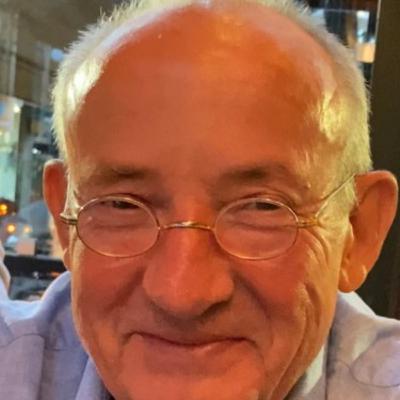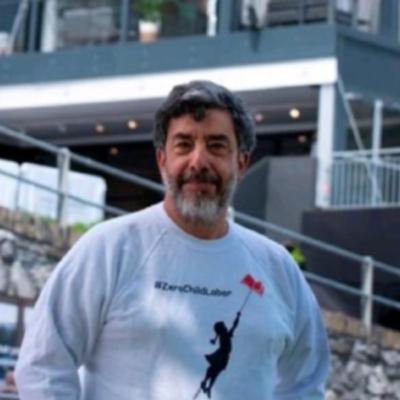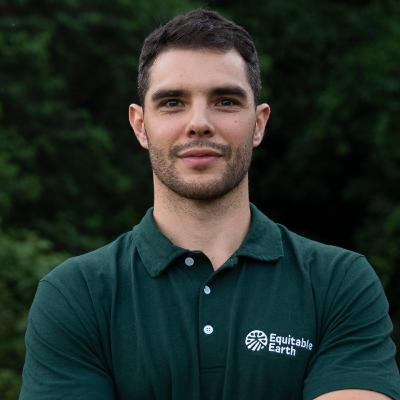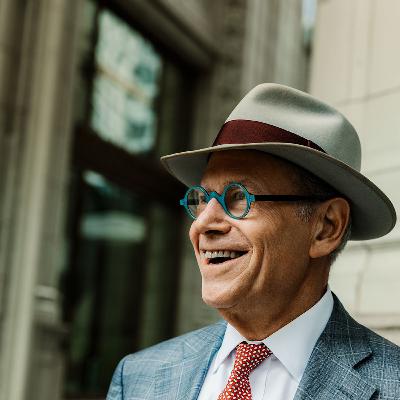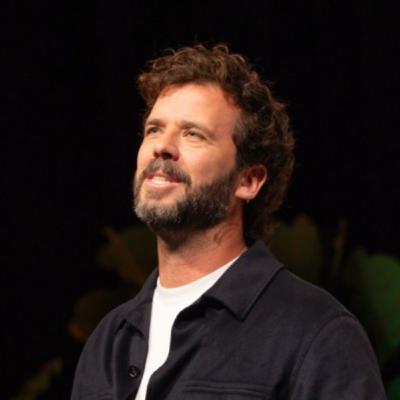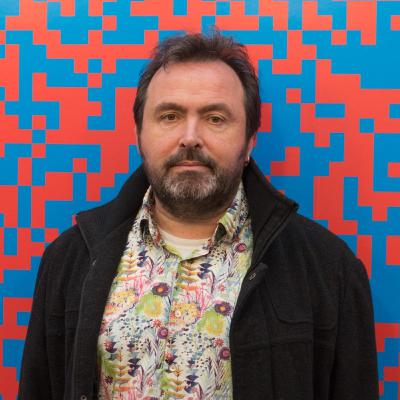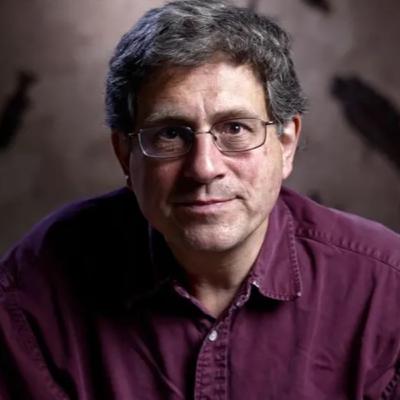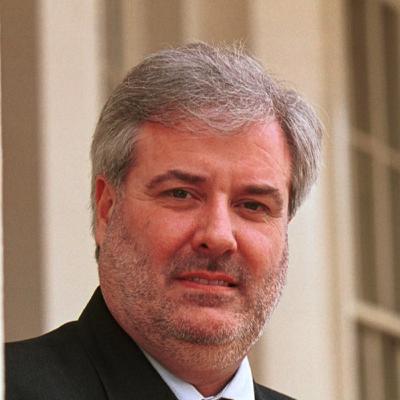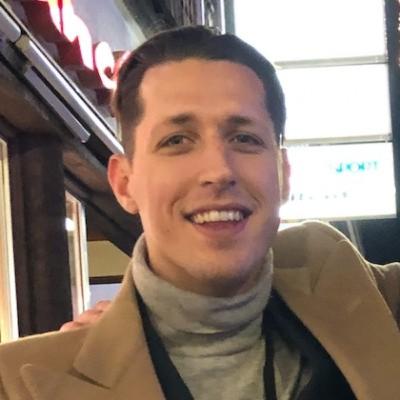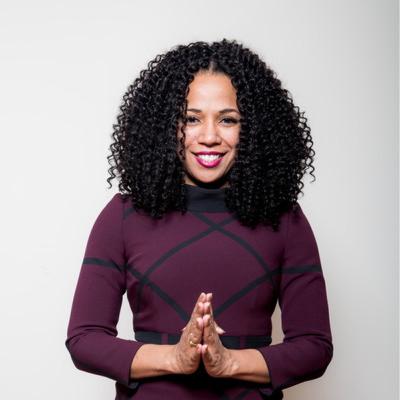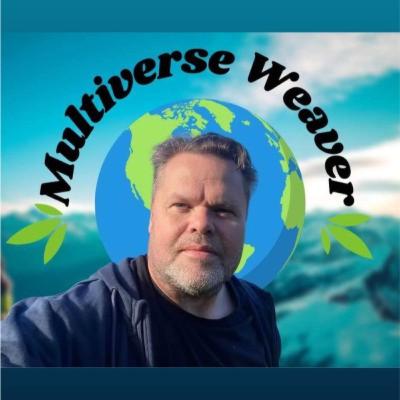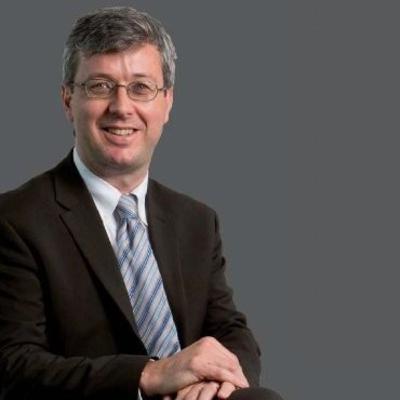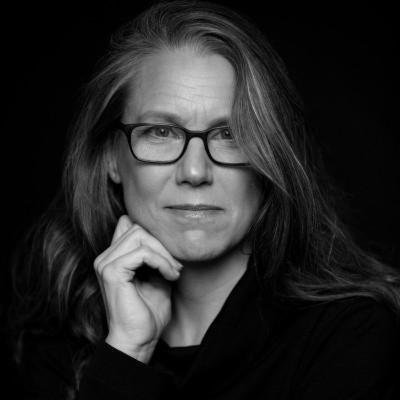Discover Radical Truth
Radical Truth

Radical Truth
Author: Robert Rubinstein
Subscribed: 5Played: 132Subscribe
Share
© Robert Rubinstein
Description
Radical Truth is a podcast produced by TBLI Group and hosted by Robert Rubinstein.
TBLI is making the financial system work for all. Our podcast cover the wide range of ESG and Impact Investing topics. What it is? Why is it booming? Is it really helping? Is Impact regenerative in nature? How will climate change impact investments? There will be regular interviews with thought leaders, some known and some not known, but all brilliant and we will have engaging conversations with all of them.
Let’s make the financial system work for all.
This is Radical Truth. Visit https://tblicircle.com/
TBLI is making the financial system work for all. Our podcast cover the wide range of ESG and Impact Investing topics. What it is? Why is it booming? Is it really helping? Is Impact regenerative in nature? How will climate change impact investments? There will be regular interviews with thought leaders, some known and some not known, but all brilliant and we will have engaging conversations with all of them.
Let’s make the financial system work for all.
This is Radical Truth. Visit https://tblicircle.com/
128 Episodes
Reverse
Welcome to TBLi Radical Truth Podcast, where knowledge inspires and we explore transformative leadership models bridging social enterprise, impact investing, and sustainable development finance across global markets.🎙️ ABOUT THIS EPISODEIn this episode, we're joined by Henri van Eeghen, Former CEO of New Energy Nexus—the world's leading organization supporting clean energy entrepreneurs and climate tech startups globally. With extensive international experience transforming traditional development organizations into financially sustainable social enterprises, Henri previously served as CEO of both KIT Royal Tropical Institute and Synergos Institute, Chief Operating Officer of Cordaid (the Netherlands' largest NGO), and held senior roles at Mercy Corps and the Van Eeghen Group family business.KEY TOPICS COVERED:✅ Transforming NGOs into financially sustainable social enterprises✅ Clean energy entrepreneurship and climate tech incubators✅ Radical transparency in development finance✅ Results-based financing and blended finance models✅ Supporting climate entrepreneurs in emerging markets✅ Energy transition and renewable energy deployment✅ Impact investing in fragile states and developing countries✅ Shifting power to local leaders in international developmentWHAT YOU'LL LEARN:Henri reveals groundbreaking strategies for transforming century-old aid organizations into agile social enterprises with radical transparency and financial sustainability. From pioneering results-based healthcare financing and impact investment funds with Cordaid, to building collaborative philanthropic networks with Synergos, Henri demonstrates how private sector partnerships, innovative financial models, and sustainable business practices accelerate renewable energy deployment and support climate entrepreneurs in emerging markets.Discover how to create pathways from traditional development funding to self-sustaining social impact organizations aligned with the UN Sustainable Development Goals (SDGs).🎧 LISTEN NOWTBLi Radical Truth Podcast brings you visionary leaders in clean energy finance, social entrepreneurship, and sustainable development who are building scalable models for climate action and impact investment.👤 ABOUT HENRI VAN EEGHENFormer CEO of New Energy Nexus, KIT Royal Tropical Institute, and Synergos Institute. International development leader specializing in social enterprise transformation, impact investing, and clean energy entrepreneurship.💬 JOIN THE CONVERSATIONWhat's your experience with social enterprise or impact investing? Share in the comments below!🔔 SUBSCRIBE for more conversations on sustainable finance, ESG investing, climate action, and impact entrepreneurship.#TBLIRadicalTruth #CleanEnergy #ClimateEntrepreneurs #SocialEnterprise #ImpactInvesting #NewEnergyNexus #SustainableDevelopment #RenewableEnergy #ClimateTech #BlendedFinance #DevelopmentFinance #SDGs #EnergyTransition #ClimateFinance #Cordaid #Synergos #ResultsBasedFinancing #CleanEnergyStartups #ImpactInvestment #SocialImpact #PhilanthropicNetworks #ClimateInnovation #EmergingMarkets #NetZero #NGOTransformation #FinancialSustainability #RadicalTransparency #ClimateAction #ESGInvesting #SustainableBusinessModels #DevelopmentEconomics
Welcome to TBLI Radical Truth Podcast, where knowledge inspires and we explore bold strategies for shareholder activism, climate finance, and transforming the energy industry from within through ESG engagement and impact investing.In this episode, we're joined by Mark van Baal, founder and executive director of Follow This—the Amsterdam-based shareholder activism organization mobilizing thousands of green shareholders and institutional investors to compel Big Oil companies like Shell, BP, ExxonMobil, Chevron, and TotalEnergies to align with the Paris Climate Agreement and accelerate the energy transition to renewable energy. After a decade as a climate journalist inspired by Al Gore's "An Inconvenient Truth," Mark pioneered a revolutionary approach to climate action: using shareholder resolutions and proxy voting to pressure fossil fuel companies to shift their billions from oil and gas exploration into clean energy and carbon reduction.In "Shareholder Activism Meets Climate Action," Mark reveals how Follow This transformed from a single €30 share purchase in Shell in 2015 into a global movement that drove climate resolutions supported by over €4 trillion in assets under management from major institutional investors including pension funds, asset managers like AXA and Amundi, and sustainable investment leaders. He shares insights on how shareholder engagement and ESG voting drives measurable climate progress—from Shell's first-ever climate ambition announcement to BP and Equinor setting emissions targets—and why climate resolutions focusing on financial risks from declining fossil fuel demand are becoming critical tools for protecting shareholder value and accelerating decarbonization. Mark demonstrates how activist investors and responsible shareholders are using corporate governance, proxy season, and AGM voting to force energy companies to address Scope 3 emissions, product emissions, and the financial sustainability of fossil fuel business models in a net-zero economy.TBLiIRadical Truth Podcast brings you climate leaders in shareholder activism, ESG engagement, and sustainable finance who are driving systemic change in energy, fossil fuels, and corporate climate responsibility. Let's begin our conversation with Mark van Baal on shareholder activism, climate resolutions, and transforming Big Oil through investor pressure.This is TBLI Radical Truth Podcast.
Robert Rubinstein: Welcome to TBLI Radical Truth, the platform dedicated to the pioneers redefining the purpose of capital. Today, we aren't just discussing financial returns; we are exposing the human cost of irresponsible investment.By January 2026, the humanitarian crisis in Myanmar has reached a staggering breaking point: 3.6 million people are internally displaced. While the world looks away, the military regime is weaponizing the country's natural wealth—jade mining, rare earth minerals, and mega-hydro projects—to fund a war against its own citizens.I’m your host, Robert Rubinstein, and joining me today as co-host is Dr. Rieki Crins.Dr. Rieki Crins: Robert, the scale of the atrocities is chilling. The United Nations has documented systematic war crimes—entire villages burned and ethnic minorities facing genocide-level persecution in Kachin, Rakhine, and Shan States. Yet, the "blood money" continues to flow through global supply chains and extractive industries.Robert Rubinstein: Our guest today is a courageous Kachin human rights activist working on the ground in Myanmar. They are at the frontlines, gathering evidence of war crimes under a military dictatorship and demanding accountability from a regime operating with total impunity.In this episode of TBLI Radical Truth, we pull back the curtain on:The 2026 Humanitarian Reality: The current state of the conflict zones in Kachin and beyond.The Finance-War Connection: How extractive industries—gold, timber, and jade—bankroll the junta.The Failure of International Sanctions: Why current global pressures are missing the mark.ESG and Responsible Investment: What investors must know about their exposure to Myanmar.Robert Rubinstein: This is more than a Myanmar story—it’s a wake-up call for global finance. Are your investments enabling atrocities?Please welcome our guest, a brave voice for the silenced. This is TBLI Radical Truth.
Welcome to TBLi Radical Truth Podcast, where knowledge inspires and we explore innovative investment models democratizing impact investing, sustainable finance, and climate solutions.In this episode, we're joined by Ellen Hensbergen, Managing Director Benelux at Invesdor—Europe's leading impact crowdfunding platform. With leadership experience at ABN AMRO and Munt Mortgages, Ellen is pioneering a financial revolution in impact capital and equity crowdfunding, shifting from exclusive venture capital to a pan-European ecosystem where everyday investors fund renewable energy, sustainable startups, and UN Sustainable Development Goals-aligned climate solutions.In "Democratizing Impact Capital Through Crowdfunding," Ellen reveals how Invesdor's merger with Oneplanetcrowd created Europe's largest impact investment platform. From renewable energy projects like Windpark Fryslân to MedTech and circular economy innovations, she demonstrates how equity crowdfunding bridges financial returns with measurable social impact and ESG performance. Ellen shares how the European Crowdfunding Service Provider (ECSP) license enables cross-border impact investing across Europe, why crowdfunding is becoming a viable alternative to traditional VC for sustainable startups, and how transparent impact measurement tracks environmental and social returns alongside financial performance.TBLi Radical Truth Podcast brings you leaders in sustainable finance and ESG who are democratizing capital markets for climate action.Let's begin our conversation with Ellen Hensbergen on impact crowdfunding and sustainable investing in Europe.This is TBLi Radical Truth Podcast.#TBLIRadicalTruth #ImpactInvesting #EquityCrowdfunding #SustainableFinance #ESGInvesting #Invesdor #Oneplanetcrowd #DemocratizingCapital #RenewableEnergy #ClimateFinance #ImpactCapital #SustainableDevelopmentGoals #SDGs #CrowdfundingEurope #GreenInvesting #SocialImpact #EnvironmentalInvesting #RetailInvestors #FinancialInclusion #CircularEconomy
How Pension Funds Can Save the Planet: Stewardship vs. ESG | Catherine Howarth (ShareAction)Trillions of dollars in pension funds hold the power to dictate the future of our planet, yet most of that capital remains passive. In this episode of Radical Truth, host Robert Rubinstein sits down with Catherine Howarth, CEO of ShareAction, to discuss why your retirement savings are a massive lever for climate and social change.We move beyond simple ESG metrics to discuss the "Radical Truth" about investor stewardship. Catherine explains how ShareAction is holding global banks and retailers accountable through systemic advocacy and why the traditional definition of fiduciary duty is being redefined to include environmental and social outcomes.Key Insights for Investors:08:45 – The Power of Your Pension: Why passive investing is no longer enough.19:20 – Stewardship vs. Divestment: Which strategy actually drives corporate change?31:10 – The Future of Fiduciary Duty: Protecting long-term value in a 2026 climate reality.44:00 – How ShareAction leverages grassroots activism to influence boardroom accountability.Connect with Radical Truth:Explore more about our work at TBLI Group.Subscribe for weekly insights into Impact Investing and Sustainable Finance.#SustainableFinance #PensionFunds #ShareAction #ImpactInvesting #ESG #Stewardship #RadicalTruthPodcast #RobertRubinsteinThis is TBLI Radical Truth
Why has global climate diplomacy struggled to keep pace with the crisis? In this episode of Radical Truth, host Robert Rubinstein sits down with Yvo de Boer, former Executive Secretary of the UNFCCC and the lead architect behind the Kyoto Protocol and Copenhagen negotiations.Yvo strips away the diplomatic jargon to reveal the "radical truth" about why UN policy often stalls and why the private sector—not just government—is the true engine of the green transition. We explore the shift from valuing only financial capital to accounting for social and natural capital, and how the Gold Standard is ensuring integrity in the carbon markets.Key Insights for Leaders:10:15 – The UN Reality Check: Why global climate policy is hitting a wall.22:40 – Green Growth: Why it’s the only viable economic model for 2026.33:55 – Natural Capital: How to move beyond financial-only metrics.45:10 – The Future of Carbon Markets: Transitioning from "promises" to "assurance."Connect with Radical Truth:Discover the TBLI mission at TBLI Group.Join a global network of impact leaders at #TBLI. http://www.tblicircle.com#SustainableFinance #ClimatePolicy #YvodeBoer #CarbonMarkets #UNFCCC #GreenGrowth #ESG #ImpactInvesting #RadicalTruthPodcast
Is your morning coffee fueled by child labor? In this episode of Radical Truth, host Robert Rubinstein sits down with Fernando Morales-de la Cruz, founder of the Lewis Hine Organization and a relentless watchdog for the global coffee industry.Fernando exposes the "radical truth" behind the marketing: how global corporations use greenwashing and misleading sustainability labels to mask forced child labor, extreme poverty, and environmental destruction in their supply chains. This is a critical discussion for investors and consumers on the reality of Human Rights Due Diligence and the urgent need for a global pricing system that guarantees a Living Wage for farmers.What You Will Learn:10:45 – The Gap: Why sustainability labels often hide human rights abuses.22:30 – Child Labor in Coffee: The disturbing statistics the industry ignores.34:15 – The Living Wage Solution: Redesigning global pricing for ethical business.45:50 – Investor Accountability: Moving beyond "check-the-box" ESG to radical transparency.Support the Mission:Join the TBLI Circle at TBLI Group.Follow Fernando’s work at the Lewis Hine Organization.#SustainableFinance #HumanRights #ChildLabor #CoffeeIndustry #ESG #SupplyChainTransparency #EthicalBusiness #LivingWage #RadicalTruthPodcast #TBLI
Are carbon credits actually delivering on their promises? In this episode of Radical Truth, host Robert Rubinstein sits down with Thibault Sorret, CEO of Equitable Earth (formerly ERS), to discuss the future of the Voluntary Carbon Market (VCM).Thibault reveals his "radical truth" on how we can move past the current crisis of opacity toward a system of digitized trust. We dive deep into the role of Digital MRV (Monitoring, Reporting, and Verification), why the market must look beyond just carbon to include biodiversity and community impact, and how Equitable Earth is setting a new high-integrity standard for ecosystem restoration.Key Insights for Impact Investors:09:30 – The Integrity Crisis: Why the VCM is at a breaking point.21:15 – Digital MRV: Using technology to create verifiable, real-time climate impact.33:40 – Beyond Carbon: Measuring success through biodiversity and local livelihoods.45:10 – The Equitable Earth Blueprint: Unlocking massive finance for restoration projects.Resources & Links:Learn more about the new standard at Equitable Earth.Join the TBLI conversation at TBLI Group.#CarbonMarkets #VCM #DigitalMRV #SustainableFinance #EquitableEarth #ThibaultSorret #ImpactInvesting #RadicalTruthPodcast #TBLI
How did a single financial innovation help end acid rain and create the blueprint for modern climate finance? In this episode of Radical Truth, host Robert Rubinstein sits down with the "Father of Carbon Trading," Dr. Richard L. Sandor.Dr. Sandor, Chairman and CEO of Environmental Financial Products, reveals the "Radical Truth" behind five decades of market creation. From inventing interest rate futures to founding the Chicago Climate Exchange (CCX), he discusses how well-regulated emissions trading systems can drive massive carbon reduction while creating entirely new asset classes for sustainable investing. We also discuss his groundbreaking new book, "Carbon Hunters: Reflections and Forecasts of Climate Markets in the 21st Century," and why climate capitalism is the key to a net-zero future.Key Insights from a "Hero of the Environment":08:15 – The Invention of Financial Futures: Lessons for today's climate markets.19:30 – Cap-and-Trade Success: How the SO2 program proved market-based solutions work.32:10 – Carbon Hunters: A look into the future of global environmental policy.45:45 – Creating Capital Infrastructure: Why carbon pricing exceeds costs by 30 to 1.Resources & Links:Join the TBLI network at TBLI Group.Get the new book: "Carbon Hunters" (World Scientific, 2025).#CarbonTrading #ClimateFinance #RichardSandor #ESG #ImpactInvesting #CarbonHunters #NetZero #RadicalTruthPodcast #TBLI
Are we paralyzing ourselves with bad news? In this episode of Radical Truth, host Robert Rubinstein is joined by Angus Hervey, political economist and founder of Fix The News (formerly Future Crunch).Angus reveals the "radical truth" about the media's obsession with "doom and gloom" and why it’s a barrier to real-world action. We explore the data-driven case for Intelligent Optimism—an evidence-based approach to the world that highlights massive, overlooked wins in clean energy, global health, and poverty reduction. If you want to understand how "hope as a verb" can drive sustainable finance and ESG integration, this is the conversation you need to hear.Key Insights for a Better Future:11:20 – Why the human brain is wired for bad news (and how to hack it).23:45 – Fix The News: The most compelling data points on global progress in 2026.35:10 – From Paralysis to Action: How Intelligent Optimism fuels sustainable investment.48:30 – Changing the Story: Why the stories we tell ourselves determine our future.Resources & Links:Subscribe to the Fix The News Newsletter.Join the TBLI network at TBLI Group.#IntelligentOptimism #FutureCrunch #FixTheNews #AngusHervey #SustainableDevelopment #PositiveNews #ESG #RadicalTruthPodcast #TBLI
Is the traditional business school model obsolete in a world facing climate collapse? In this episode of Radical Truth, host Robert Rubinstein sits down with Professor Martin Parker (University of Bristol), a leading internal critic of global management education and author of Shut Down the Business School.Martin shares his "radical truth" on how we can organize beyond hierarchy and traditional management. We explore the explosive growth of the "business school complex," why rankings are often misleading, and how to build a low-carbon, high-inclusion, and democratic economy.Key Insights for Future Leaders:11:04 – Networking vs. Knowledge: Are business schools just elite social clubs?18:52 – The Responsibility of Educators: Producing students who value the planet over profit.27:14 – Moving Beyond Neoliberalism: Why market-based ideas struggle to solve climate change.42:02 – Embedding the University: How Bristol is leading the way in green initiatives.Resources & Links:Join the TBLI network for more radical insights at TBLI Group.Discover Martin's work and books via Bristol University.#BusinessSchool #MartinParker #AlternativeEconomics #Sustainability #Management #RadicalTruth #TBLI #GreenEconomy #HigherEducation
Can you reduce global carbon emissions without a bank account? In this episode of Radical Truth, host Robert Rubinstein talks with Robert Stern, founder of the See-Through Network.Robert shares his "Radical Truth" on why traditional climate activism often fails and how he uses "Transparent Trojan Horses" to move people from inactivity to action. We dive into his unique zero-budget business model, the power of radical transparency, and how local Facebook groups can be leveraged to influence national environmental policy.Key Insights for Impact Innovators:10:10 – The 10-word mission: Speeding up carbon drawdown by helping the inactive become active.22:28 – Why the "Green" label can be a barrier: The psychology of the See-Through brand.39:45 – The Act Game: Using "tightly worded legal clauses" to force political accountability.1:04:49 – The productivity of zero: Why removing money can make an organization 10x more effective.Connect with the Network: www.tbligroup.comExplore the See-Through projects at See-Through Carbon. https://www.seethroughcarbon.org/Join the TBLI mission at TBLI Group. www.tbligroup.com#ClimateAction #Storytelling #Sustainability #RobertStern #ZeroBudget #CarbonDrawdown #BehavioralScience #RadicalTruth #TBLI
Is your company’s greatest asset—its people and knowledge—missing from your financial statements? In this episode of Radical Truth, host Robert Rubinstein talks with Ludo Pieters, founder of the Ariopa Group, who has spent decades solving the "accounting crisis" of the knowledge economy.Ludo reveals his "Radical Truth" on how to transform intangible assets like IP and ESG initiatives into audited, monetary values that banks and investors can actually leverage. We explore his 10-step methodology for moving from tacit to explicit knowledge, creating multiple money streams, and why traditional accounting is still stuck in "Jurassic Park."Key Insights for CFOs & Investors:09:32 – Why 87% of the economy is knowledge-based, yet invisible to accountants.18:18 – IAS 38 & Auditing: How Ariopa’s methodology was accepted by the International Accounting Standards board.29:21 – Multiple Money Stream Creation: A case study on turning one software product into an $800M revenue engine.55:16 – ESGV: Adding "Value" to ESG to move sustainability from a cost center to a profit center.1:08:25 – The KMI (Knowledge Management Inside) model: How to de-risk SME loans for banks.Resources & Links:Learn more about Ariopa’s valuation tools at Ariopa Group.Join the TBLI ecosystem at TBLI Group.#SustainableFinance #IntangibleAssets #LudoPieters #ESG #AccountingReform #ImpactInvesting #RadicalTruth #TBLI #SMEGrowth
Why has sustainability data become an "esoteric mess," and how do we fix it? In this episode of Radical Truth, host Robert Rubinstein sits down with Frank Tobé, co-founder and CEO of Supernova—an AI-enabled marketplace designed to help investors find, understand, and act on sustainability data without friction.Frank brings a unique perspective as a third-generation entrepreneur (Kruidvat Holding) and board member of DOB Equity and DOB Ecology. We explore the "Radical Truth" of Data Convergence: moving from the fragmented data we have to the actionable insights we need to build compliant, high-impact portfolios.What You Will Learn:12:15 – The Divergence: How ESG data became a complicated, esoteric barrier to entry.24:40 – The Supernova Vision: Using AI to create a frictionless marketplace for sustainability.38:10 – Convergence: Bridging the gap between raw data and investment action.52:20 – Family Office Insights: Lessons from DOB Equity on VC investing in East Africa.Resources & Links:Join the TBLI network at TBLI Group.#SustainableFinance #SupernovaAI #FrankTobe #ESGData #ImpactInvesting #FamilyOffice #VentureCapital #RadicalTruth #TBLI
Is diversity the untapped source of market alpha? In this episode of Radical Truth, host Robert Rubinstein is joined by Bahiyah Yasmeen Robinson, Founding Partner of Include Ventures.Bahiyah shares her "Radical Truth" on building a blended finance flywheel that has catalyzed over $2 billion in impact capital. We discuss the leading women driving climate change and sustainability across the US, UK, and Africa, and how inclusive investing is moving from a moral imperative to a core driver of financial value. Discover the measurement frameworks that are actually working for double and triple bottom line impact in 2026.What You Will Learn:08:45 – The Inclusion Gap: Why only 1% of assets are managed by diverse teams.19:30 – Climate Justice Initiative: Financing the next generation of green fund managers.32:10 – Hope as a Strategy: Scaling gender and racial diversity in global capital markets.45:50 – Measurement & Accountability: Frameworks for verifiable triple-bottom-line impact.Resources & Links:Explore the Include ecosystem at VC Include.Join the TBLI network for more radical insights at TBLI Group.#InclusiveInvesting #BahiyahYasmeenRobinson #ImpactInvesting #BIPOC #ClimateJustice #SustainableFinance #TripleBottomLine #RadicalTruth #TBLI
Are the SDGs just a list of 17 goals, or a revolution in global responsibility? In this episode of Radical Truth, host Robert Rubinstein is joined by Paula Caballero, the "Mother of the SDGs" and Regional Managing Director at The Nature Conservancy.Paula reveals the "radical truth" behind the genesis of the Sustainable Development Goals. She explains how a small team from the Global South upended the traditional UN power structure to create a truly universal agenda—one that shatters the artifice between "developed" and "developing" nations. We explore why SDG 12 (Consumption and Production) is the "mother of all goals" and what is urgently needed to move from policy rhetoric to on-the-ground implementation by 2030.What You Will Learn:12:15 – The Paradigm Shift: Moving from paternalistic aid to shared global responsibility.25:40 – MDGs vs. SDGs: Why the environment is the core of the development equation.38:20 – The Power of SDG 12: How changing consumption patterns fixes the system.50:10 – Implementation Realities: The technical, science-based approach to meeting the 2030 targets.Resources & Links:Join the TBLI network at TBLI Group.Explore Paula’s current work at The Nature Conservancy.#SDGs #PaulaCaballero #SustainableDevelopment #Agenda2030 #ClimateAction #ESG #ImpactInvesting #RadicalTruth #TBLI
Is our focus on financial capital blinding us to the power of human connection? In this episode of Radical Truth, host Robert Rubinstein sits down with Bert-Ola Bergstrand, a systems entrepreneur and leading architect of the "New Economy."Bert-Ola reveals his "Radical Truth" on why Social Capital is the essential lubricant for sustainable finance and systemic change. We explore his latest framework, "The Learning Society," and discuss how connecting people, passion, and places creates the resilience needed for a future-proof society. If you want to understand how to move from transactional to relational impact, this is the conversation for you.What You Will Learn:10:45 – Beyond Money: Why Social Capital is the most undervalued asset in ESG.22:30 – Building Social Capital: Practical steps to catalyze trust in complex systems.35:15 – The Learning Society: A new framework for a future based on collective intelligence.48:50 – Systems Entrepreneurship: How to weave together Katapult, United Cities, and the global impact movement.Resources & Links:Join the TBLI network at TBLI Group.#SocialCapital #SystemsEntrepreneurship #NewEconomy #ImpactInvesting #LearningSociety #SustainableDevelopment #CollaborativeIntelligence #RadicalTruth #TBLI
Are you drowning in ESG data but starving for insights? In this episode of Radical Truth, host Robert Rubinstein sits down with Dr. Grégory Schneider-Maunoury, one of Europe’s leading economists and ESG data experts.Grégory reveals his "Radical Truth" on the practical realities of sustainability metrics. Moving beyond theory, he walks us through three detailed case studies that demonstrate how to gather, filter, and apply ESG data to strengthen investment decisions and manage long-term risk. Learn how to separate genuine sustainability signals from the "noise" of modern corporate reporting.What You Will Learn:11:30 – The Data Dilemma: Why more data doesn't always lead to better ESG decisions.23:45 – Case Study 1: Integrating environmental metrics into traditional risk models.35:20 – Case Study 2: Measuring social impact without the "fluff."48:10 – Case Study 3: Leveraging governance data for long-term value creation.1:02:05 – The Future of Data Science: AI and the evolution of impact analysis in 2026.Resources & Links:Join the TBLI network for technical ESG deep-dives at TBLI Group.Follow Dr. Grégory Schneider-Maunoury's latest research on LinkedIn.#ESGData #ImpactAnalysis #SustainableFinance #DataScience #GrégorySchneiderMaunoury #InvestmentStrategy #ESGIntegration #RadicalTruth #TBLI
Is your company’s ESG strategy actually aligned with reality? In this episode of Radical Truth, host Robert Rubinstein is joined by B. Lorraine Smith, a veteran sustainability advisor and "corporate mischievist" who has been challenging global corporations since 2004.Lorraine shares her "Radical Truth" on why most ESG disclosures are misaligned with the actual needs of our planet and society. We dive into her concept of "Matereality," explore why an economy in service of life is not only possible but inevitable, and discuss why curiosity and connectedness are a leader's greatest assets in the 21st century.What You Will Learn:09:15 – The Service of Life: Defining an economy that prioritizes planetary health.21:40 – Matereality vs. Materiality: Why we need to "respell" corporate truth.33:10 – The ESG Trap: Why disclosures are meaningless without a life-aligned purpose.46:25 – Corporate Mischief: How to tell the truth in a system designed for spin.58:50 – Endurance & Craft: Lessons from ultra-running and textile arts for sustainable leadership.Resources & Links:Explore Lorraine’s writing and the Matereality project at BLorraineSmith.com.Join the TBLI network for honest conversations at TBLI Group.#SustainableBusiness #BLorraineSmith #Matereality #ESG #RegenerativeEconomy #CorporateResponsibility #ImpactInvesting #RadicalTruth #TBLI
Can we plant our way out of the climate crisis? In this episode of Radical Truth, host Robert Rubinstein sits down with Thomas Crowther, Professor at ETH Zurich and founder of the Crowther Lab and Restor.Thomas shares the "Radical Truth" about large-scale restoration—moving beyond the hype of tree planting toward the complex science of ecosystem regeneration. We explore how biodiversity acts as the ultimate climate stabilizer, the power of open-source data via Restor, and Thomas's role as Chief Scientific Advisor to the UN’s Trillion Trees Campaign. This is a masterclass in how to align capital with the real-world requirements of nature.Key Insights for Impact Investors:12:20 – The Trillion Trees Story: What the media got right (and wrong) about the science.25:45 – Beyond Tree Planting: Why protecting existing ecosystems is the first priority.38:10 – Restor: Using open-source tech to bring transparency to nature-based solutions.49:30 – Biodiversity vs. Carbon: Why we need to measure more than just CO2.1:05:15 – The UN Decade on Ecosystem Restoration: A roadmap for the 2030 targets.Resources & Links:Track restoration projects in real-time at Restor.eco.Explore the latest data from the Crowther Lab.Join the TBLI network at TBLI Group.#EcosystemRestoration #ThomasCrowther #NatureBasedSolutions #Biodiversity #ClimateAction #Restor #ImpactInvesting #RadicalTruth #TBLI







